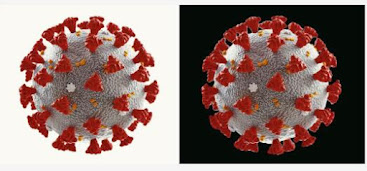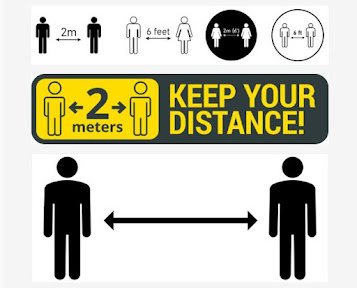COVID-19
What is coronavirus?
A small virus has disturbed our lives. Coronavirus is a family of viruses that cause illnesses such as the common cold, severe acute respiratory syndrome(SARS), and the Middle East respiratory syndrome(MERS).
How does coronavirus spread?
As we all know coronavirus scatters when we come in contact with an infected person and thus coronavirus enters our body. As an infected person talks or snizzes, the water droplets with the help of air scatters, and as our body comes in contact with those particles, they enter our body, and sometimes all of a sudden we can start to examine the symptoms. Therefore, it is instructed by our government to maintain social distancing. These droplets of a variety of sizes are captured in a turbulent gas cloud and with the help of this, they can travel to 26 feet.
Structure of coronavirus: Coronavirus is covered by some spike kind of thing called spike protein which is the most harmful and dangerous part of coronavirus. The genetic material present inside the virus replicates and produces more. The coronavirus particles are organized with long RNA polymers tightly packed into the center of the particle and surrounded by a protective capsid, which is a lattice of repeated protein molecules referred to as a coat or capsid proteins. In coronavirus, these proteins are called the nucleocapsid (N).
From where does it enter?
Coronavirus cannot enter any part of the body except the lungs. As lungs have a cell membrane (selectively permeable membrane) virus cannot enter through that membrane, therefore, the virus gets attached to the receptors which are present on the surface of the lungs as the cell membrane allows only a special kind of material to enter. As the tissue of lungs is sensitive they enter and ribosome helps them synthesize their own protein as ribosomes produce proteins virus gives their genetic material and start to replicate. And in this way the number of viruses increases.
How does corona get clear?
The immune system(the Immune system is a combination of a network of various cells and proteins that defends our body against any infection) starts to produce antibodies. As the antibodies are produced they start sticking to the spike proteins and they lock those proteins and they restrict their way. But if they are in large number, they can survive but if they are minimum they won't survive maybe they will die.
What does a vaccine actually do?
As our immune system starts to produce antibodies, vaccine enters and speed up the process of making antibodies in the body as they get produced they go to the spike proteins of virus and lock up their way and in this way they do not enter in the lungs.
Why does it take such a long time to produce a vaccine?
The scientists were not sure about the genetic material present in the body, whether it was RNA (Ribose nucleic acid) or DNA (Deoxyribonucleic acid) which is present in our body. DNA is a double helix but RNA is a single helix. And after some time they realized that the virus contains RNA, then they started preparing vaccines.
Vaccines produced till now:
1. Pfizer.
2. Covidshield (by Oxford University and Astrzenaca)
3. Sputnik.
4. Novavax (by UNO)
5. Covaxin (by Bharat Biotech)
Questions that are common about COVID-19:
1. How does coronavirus spread?
Coronavirus is a common virus that causes an infection in your nose or upper throat. When a person comes in contact with an infected person or while talking or sneezing if water droplets contain the virus it can also spread through this medium. It can cause the common cold, fever, dry cough, tiredness, loss of taste and smell, also sometimes sore throat.
2. What is the name of the virus which causes coronavirus disease?
Coronavirus disease is caused by the virus named SARS-CoV-2.
3. What can I do to ease my fear during COVID-19?
If you feel fear of been COVID positive, so start doing a workout. When you start doing a workout you will start feeling free, you feel comfortable and you get rid of stress. Still, if you feel fear, then you can start doing meditation, it relaxes your mind. It gives a new perspective on stressful situations and helps you relax your mind.
4. How long will COVID-19 last on any surface?
By recent studies and information, coronavirus can remain feasible for up to 72 hours on plastic and stainless steel, and up to 4 hours on copper, and 24 hours on cardboard.
To prevent the spread of COVID-19 follows the following rules :
1. Clean your hands often. Use soap, liquid wash, and water or an alcohol-based hand rub.
2. Stop going outside without any reason. If you go outside maintain social distancing, use sanitizer, wear masks, wash your hands.
3. After coming home have a bath and then touch any object of your house.
4. Avoid going to crowded places.
5. Keep your rooms well ventilated.










